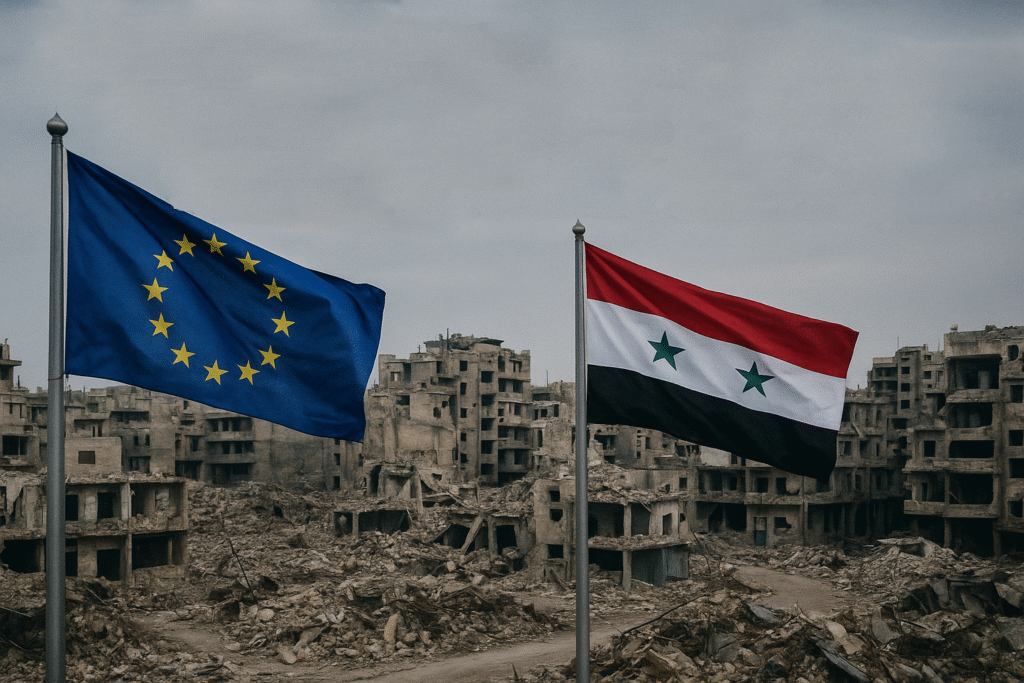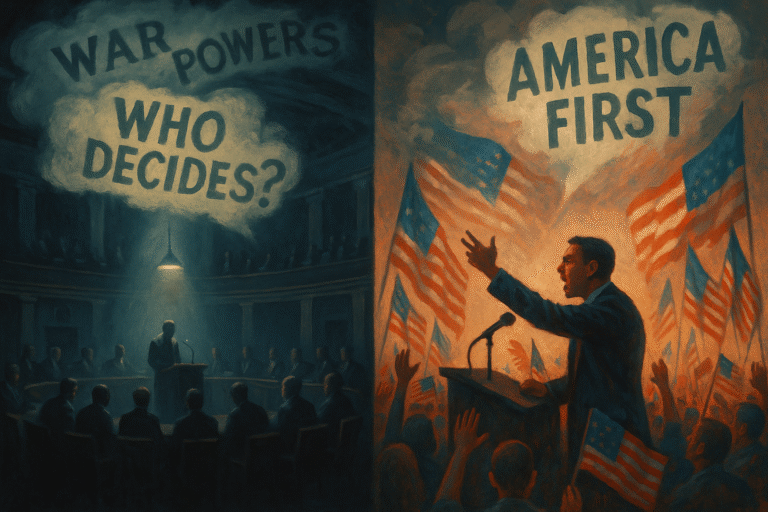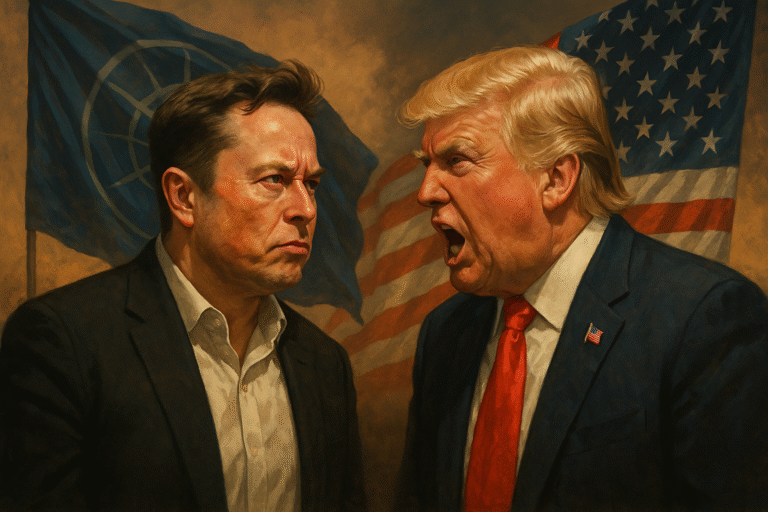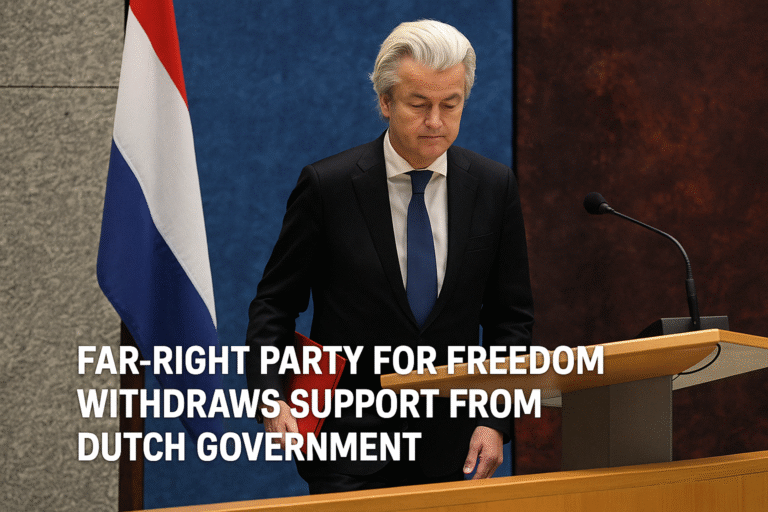
Donald Trump’s unexpected announcement to lift U.S. sanctions on Syria sped up the European Union’s timeline for similar action. On Tuesday, the EU agreed to lift all remaining economic sanctions on Syria, citing the need to support reconstruction efforts after the fall of Bashar al-Assad’s regime in December. The move was framed as a humanitarian gesture aimed at facilitating financial access and rebuilding a peaceful, inclusive Syria under interim President Ahmed al-Sharaa.
EU High Representative Kaja Kallas emphasized the importance of giving Syria a chance at stabilization, while also warning that sanctions could return if democratic commitments are not upheld. Although the economic sanctions were removed, restrictions on weapons, surveillance software, and individuals linked to Assad remain in place. The EU, Syria’s largest donor since 2011, has contributed nearly €37 billion in aid, and now hopes to assert influence in the post-Assad reconstruction process.
Political Analysis
Geopolitical Realism and Strategic Re-entry
The EU’s decision reflects a realist understanding of international politics. With Assad gone, the EU sees an opportunity to re-establish influence in Syria and prevent rivals (Russia, Iran, China) from monopolizing the post-war reconstruction. Trump’s bold unilateralism created a geopolitical urgency that the EU could not ignore.
Relevant theory:
Realism (Hans Morgenthau, Kenneth Waltz) – states act primarily in their own interest, pursuing power and stability rather than ideals. The EU is acting to preserve regional balance and secure its southern neighborhood.
Liberal Internationalism and Conditional Engagement
Despite realist motives, the EU frames its actions in terms of liberal values: peace, inclusion, and humanitarian support. Kallas’s conditional language (“we don’t have a choice… or we’ll have another Afghanistan”) reflects liberal institutionalism — engaging with regimes to encourage reform through cooperation and incentives.
Relevant theory:
Liberal internationalism (Immanuel Kant, Woodrow Wilson) – promoting peace and cooperation through institutions, with emphasis on human rights and democracy.
Also: Constructivism (Alexander Wendt) – norms and identities shape state behavior; the EU positions itself as a normative power.
Risk Management and “Responsibility to Re-engage”
The EU, historically wary of instability in its neighborhood, is managing risk by offering limited reintegration into the global economy. It’s not a “blank cheque”; sanctions on arms and surveillance remain. This reflects a pragmatic balance between humanitarianism and security logic.
Relevant frameworks:
- Risk society (Ulrich Beck): modern states must manage complex risks rather than eliminate them.
- Responsibility to Protect (R2P): while originally used to justify intervention, it now extends to post-conflict support.
Economic Diplomacy and Post-Conflict Opportunity
Syria was economically isolated under sanctions, with trade at minimal levels. By lifting economic restrictions (but keeping strategic controls), the EU opens space for economic diplomacy and soft power. States like France or Italy might pursue reconstruction contracts, while the EU retains leverage.
Relevant theory:
Soft power (Joseph Nye) – the ability to influence others through attraction and cooperation rather than coercion.
Neo-functionalism (Ernst Haas) – cooperation in one area (economic relief) can lead to integration in others (political reform).
Narrative Control and Symbolic Politics
The EU presents the move as a form of solidarity with the Syrian people, subtly rewriting the narrative of Western engagement in the region. While Trump plays the “disruptive dealmaker,” the EU tries to balance institutional legitimacy and moral authority.
Relevant theory:
Symbolic politics and discourse analysis (Murray Edelman, Michel Foucault) – policy often functions symbolically to project meaning and shape perception, not just deliver outcomes.
The lifting of EU sanctions is not a mere reaction to Trump’s bold diplomacy — it is a calculated political move shaped by a combination of realist pragmatism, liberal values, economic interests, and narrative framing. The case illustrates how multiple political theories can be layered to interpret complex geopolitical decisions:
- Realism explains power-balancing and urgency.
- Liberalism frames cooperation and conditionality.
- Constructivism shows how values and identity legitimize action.
- Economic diplomacy underscores opportunity and soft power.
- Discourse theory reveals how meaning is managed to sustain legitimacy.



